PhD Students
Meet Our PhD Students
Meet the current PhD students in the Department of Population, Family and Reproductive Health: Learn why they chose Hopkins, the research they are pursuing, and their experiences while in the program.
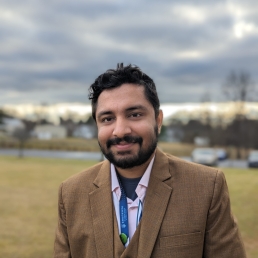
Md Zakiul Alam, MSS
Growing up in a region of persistent high maternal mortality and morbidity, my current research seeks to identify the key determinants and causal pathways leading to severe maternal morbidity in the United States, intending to inform more effective prevention and intervention strategies. I am originally from Bangladesh. After graduating from the Department of Population Sciences, University of Dhaka, I worked as a research associate at the BRAC Institute of Governance and Development (BIGD), BRAC University, Bangladesh. Later, I joined the Department of Population Sciences, University of Dhaka, as a faculty member. I chose PFRH because of its interdisciplinary and life course approaches to health outcomes, which align with my previous multidisciplinary research work, encompassing population and health. At Bloomberg, I am exploring maternal health through a life course and interdisciplinary lens to inform policies and programs that advance health equity and improve women's outcomes.
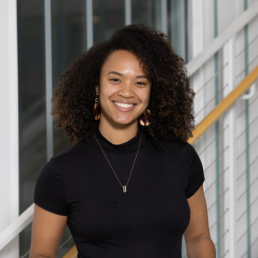
Morayo Akande
My research uses longitudinal and latent variable methods to examine how patterns of adolescent intimate partner violence (IPV) exposure shape depressive symptom trajectories from mid-adolescence into young adulthood. More broadly, I focus on the primary prevention of gender-based violence among adolescents and young adults, with an emphasis on engaging boys and men. I work on projects to strengthen sexual and reproductive health (SRH) programming for adolescent boys in clinical settings. Prior to my doctoral training, I worked as a Project Coordinator on integrated HIV-IPV prevention programs in South Africa and with transgender women in the U.S., experiences that continue to inform my trauma-informed, equity-driven approach.
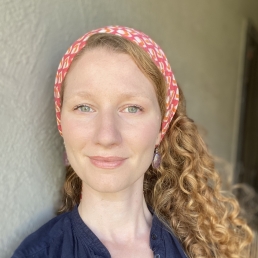
Jessica Angelson, CNM
My current research takes a multi-methods approach, exploring pathways to severe maternal morbidity in the United States. My broader research interests are in maternal health system and midwifery workforce development, the political economy of maternal health, reproductive justice, global trends in cesarean birth, and participatory action research. A midwife by training, after a decade in clinical work I was drawn to PFRH for its excellent faculty, its many opportunities to be involved in rigorous research spanning both the life course and the globe, and its support for clinician-researchers. Addressing complex public health problems requires expertise from many specialties and the possibilities for collaboration at BSPH are truly endless. My goal is a multi-pronged career involving scholarly research, government consultation and advocacy for sustainable maternal health policy and systems, and the education of the next generation of midwives and public health professionals. There is so much work to be done for women and birthing people, both in the U.S. and across the globe.

Bre Calhoun
My current research focuses on identifying severe maternal morbidity (SMM) as a racialized exposure during labor and delivery and the impact it has on mental health during the postpartum period. My interest in reproductive and perinatal health / maternal health began as a young child and grew throughout my experience as a certified doula. I believe that the pregnancy and postpartum period are some of the most vulnerable times in an individual’s life and some racial and ethnic groups are more susceptible to adverse maternal health outcomes than others. Therefore, it is important to understand the relationship between SMM, race and ethnicity, and postpartum mental health conditions so that prevention and intervention methods can be properly implemented to improve these outcomes. I chose Bloomberg School of Public Health (BSPH) because it was the only school that offered the exact area of interest / track (MFP) that I wanted to pursue and the robust curriculum. BSPH also has some of the best faculty in the space that I wanted to work and thankfully I have been able to work with them since entering the program.
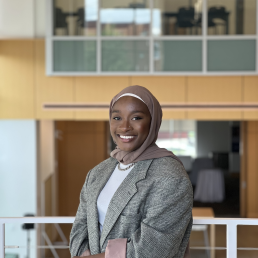
Safyya Cissé, MHS
My academic journey in economics began with a deep interest in quantitative analysis and a commitment to addressing inequality. In the latter part of my undergraduate studies, I discovered that economic tools could be powerfully applied to global health challenges, particularly those affecting marginalized populations, which sparked my passion for health economics.
I went on to earn an MHS in Global Health Economics, where my capstone explored mobile phone ownership as a predictor of women’s economic empowerment in Kenya and Burkina Faso. This experience solidified my interest in gender-focused research. Today, my research centers on the intersection of gender, health, and economic development. I am particularly interested in how household dynamics and structural health systems shape reproductive decision-making and child health outcomes in the global South.
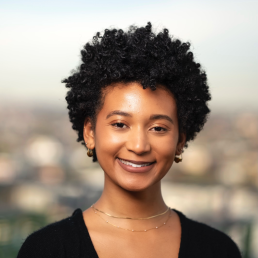
Aja Clark, MPH
My experiences as a patient, coupled with my work as a sexual health educator and doula, ignited my passion for public health. This journey has deepened my commitment to exploring how communities and public health professionals can support adolescents by providing them with vital reproductive and sexual health information, equipping them to make informed decisions throughout their lives. I chose the Bloomberg School of Public Health for its strong focus on rigorous scientific research and its role as a global leader in public health. I was drawn to the Department of Population, Family, and Reproductive Health for its emphasis on the life course framework, the Center for Adolescent Health housed within the Department, and my faculty advisor, Dr. Powell. I am interested in the link between early menstrual health education, long-term health outcomes, and healthcare experiences. I aim to influence policy to become more inclusive and responsive to the specific health and educational needs of Black youth.
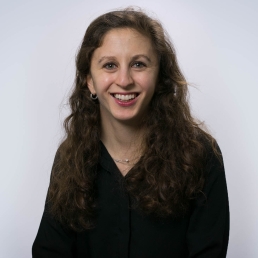
Charlotte Greenbaum
My research interests lie in applying a life-course perspective to issues of adolescent sexual and reproductive health and women’s empowerment. Specifically, I am interested in assessing quantitative measures of adolescent girls and young women’s sexual and reproductive autonomy in low- and middle-income countries, including a quantitative measure of individual sexual readiness at sexual debut. I am currently working on research with the Performance Monitoring for Action (PMA) project, the Global Early Adolescent Study, and other projects in PFRH. Prior to starting the PhD program at Johns Hopkins, I obtained my SM from the Harvard TH Chan School of Public Health and worked as a policy advisor for Population Reference Bureau (PRB).
I chose PFRH for my PhD because of the Department’s life course approach to addressing public health issues and strong training in both quantitative and qualitative analysis regarding women’s sexual and reproductive health. The Bloomberg School also offered numerous opportunities to collaborate with professors and projects across different departments and schools, as well as a certificate program in health in humanitarian settings. Now in the program, more than anything else, I appreciate the supportive environment created by the students, faculty, and staff in the PFRH department. After graduation, I plan to continue research applying a life-course perspective to issues of sexual and reproductive health and building knowledge to improve the health and well-being of women and girls.
Nusrat Jabin
As an aspiring epidemiologist, my research focuses on maternal and child health, particularly how early-life exposures—such as maternal health, intrauterine conditions, and perinatal factors—shape health trajectories across the life course. I am especially interested in the interplay of biological, behavioral, and environmental factors and their long-term health impacts.
I hold an MS in International Health and Tropical Medicine from the University of Oxford, where I contributed to studies published in The Lancet Haematology and The American Journal of Clinical Nutrition on gestational hemoglobin levels and weight gain in relation to perinatal outcomes. Previously, I worked as a research analyst for the NIH-funded Bangladesh Cook Stove Pregnancy Cohort Study (CSPCS), contributing to five publications on the health effects of indoor air pollution in low-resource settings. At present, I work as a Research Assistant in collaboration with faculty and students in the Center on the Early Life Origins of Disease (CELOD) with Dr. Xiaobin Wang as my advisor.
I chose the Department of Population, Family and Reproductive Health (PFRH) for my PhD because of its outstanding faculty, interdisciplinary training, and collaborative research environment. The department’s emphasis on life course health, reproductive and perinatal epidemiology, and quantitative methods closely aligns with my research interests and career goals.
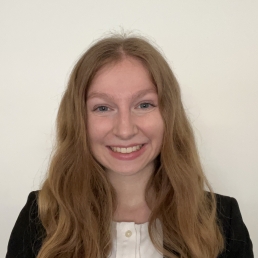
Lauren Klein, MPH
My research seeks to explore how early experiences and contexts shape outcomes across the life course and leverage this understanding to inform cross-sectoral interventions, especially those at the intersection of health and education. I am particularly interested in school health interventions, such as school-based health centers, and early childhood home visiting programs as mechanisms to bridge sectors and empower children and families.
With a background and undergraduate degree in biological sciences, I became passionate about applying molecular science in ways that could positively impact people. After conducting research in molecular cell biology, psychology, and education policy, I began to pursue opportunities that bridged the disciplinary gaps I saw. Experience providing support to projects on both US and global scales informs my perspectives on programming for children and families.
I am grateful for the opportunity to continue my education at JHU after earning my MPH at the Bloomberg School of Public Health. During my time in the PhD program, I look forward to continuing collaborations at JHU that I began prior to my PhD and beginning some new ones, all the while learning how to better support the health and wellbeing of children and families!
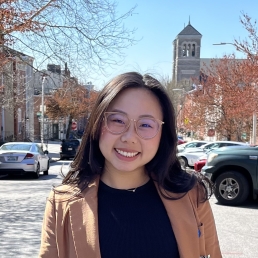
Stacy V. Lu, MSPH '21
My research and teaching are deeply intertwined, and both are informed by disability justice and my experiences as a disabled person. My dissertation—supported by the Wendy Klag Center for Autism and Developmental Disabilities—uses a qualitatively driven mixed methods approach to examine the infant feeding experiences and decisions of parents with intellectual and/or developmental disabilities. Throughout my time at JHU, I have designed and taught several undergraduate courses about disability justice and public health through the SOUL program and Gordis Teaching Fellowship. I earned my MSPH concentrating in Child Health, and am completing my PhD concentrating in Maternal, Fetal and Perinatal Health. I chose PFRH for both my MSPH and PhD because of the research opportunities aligned with my interests and the supportive network of faculty.
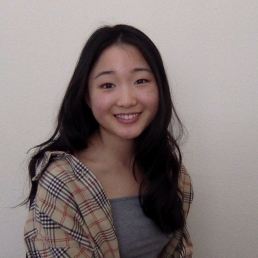
Amy Luo
My primary interest is applying a gender analysis lens to health disparities and health service research in women’s health, and reproductive and sexual health. I chose the Department of Population, Family and Reproductive Health at BSPH for its strong training on both my topics of interest and quantitative methodologies, including in observational causal inference designs in social sciences. Currently, I work in collaboration with faculty across departments at the Bloomberg School and the School of Medicine on research examining intimate partner violence, integrating gender analyses within international monitoring and evaluation mechanisms, and reproductive and maternal health.
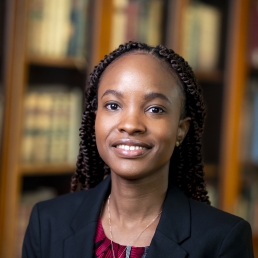
Kimberly Mihayo
My research focuses on understanding how the availability and quality of family planning services can influence contraceptive uptake, method choice, and continuation among women in sub-Saharan Africa. I previously worked with the Global Early Adolescent Study (GEAS) on a project that aimed to understand how empowerment trajectories shape sexual and reproductive health outcomes among very young adolescents in Ethiopia. Recently, my research has focused on improving the measurement of prospective fertility preferences in resource-limited settings by adapting the Desire to Avoid Pregnancy (DAP) scale to be used for evaluating women's and men's fertility preferences in Uganda.
I was drawn to the Department of Population, Family and Reproductive Health (PFRH) because it has a long history of advancing cutting-edge research and has pioneered frameworks, methods, and approaches to better contextualize the lived experiences of the most vulnerable populations. Over the last year, I’ve had the privilege of serving as a Doctoral Student Council (DSC) representative for PFRH, liaising between the study body, and the department’s faculty and staff on aspects related to student life, academics and wellbeing. In this role I have learned that the PFRH community is one where students are seen and valued. The faculty, administrators and staff genuinely care about student wellbeing, and are receptive to both feedback and criticism that enable them to build a better departmental community where students can thrive. It’s how PFRH centers students—their voices, ideas, and wellbeing—that makes this community like none other. This is what makes the PFRH community special, and what I like most about being part of it!
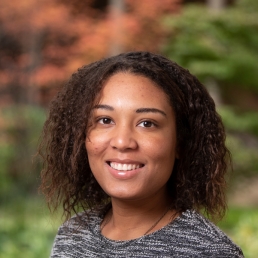
Tori Rockwell
Social policy and anti-poverty policy are my home sweet homes, but public health study deepens my ability to articulate through my research how people really socioeconomic marginalization – it isn’t just economically, it’s in their very bodies and beings.
I apply my training as a social scientist to understand the implications of environmental inequity in gynecologic cancer and disorder epidemiology. I chose it during my PhD apprenticeship when I interned in clinical research with the Gynecologic Oncology Service at Johns Hopkins Medicine. Public health context is essential in the clinical treatment and prevention of GYN cancer, as well as implementation of interventions. It is my honor to do my tiny part as plank of the bridge to that contextual understanding for clinicians and medical practitioners, and I do it for all those people of color who I have personally met (and those I’ve yet to see or serve) who unnecessarily died sooner than their white counterparts.
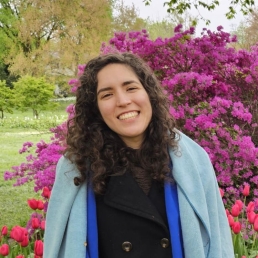
Andrea Rodriguez-Villafane
I am interested in learning about individuals' experiences to understand how to improve health surveys and programs. Currently, I am working with Performance Monitoring for Action (PMA) data examining factors associated with contraceptive use dynamics and the fulfillment of contraceptive method preferences. With this research, I wish to understand how we can provide better services to individuals seeking contraceptives. In 2023, I received my MSPH in the same Department. During my MSPH, I worked on the impact of migration and mobility in accessing health care both locally and internationally. My values of equity and honesty influence my research and my personal life. Outside of my research, I am involved in committees to improve the sense of belonging in our campus.
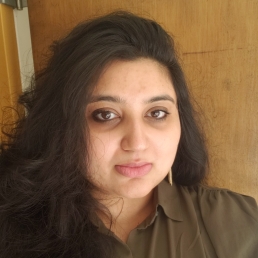
Shashi Sarnaik
Currently, my research interests are centered on South Asian experiences of sexual and reproductive health care. I am particularly interested in experiences of care amongst the diaspora and how their experiences may impact their care-seeking behavior (and preferences), self-image, and sexual and reproductive goals (and vice versa). I've also been involved in research spanning from collaborative population-level measure development work to assess sexual and reproductive wellbeing to smaller qualitative and quantitative assessments of contraceptive and abortion care experiences and care provision. My work and research interests are informed by a reproductive justice and human rights lens, as well as my own identity/background as a Desi and proud daughter of immigrants.
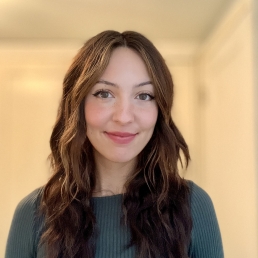
Nicole Stamas, MSc
I am a PhD student concentrating on Women’s Sexual and Reproductive Health and Epidemiology Research Methods within the Department of Population, Family, and Reproductive Health. My research interests include menstrual health, reproductive disorders, gender-based violence, and gender equity and empowerment among women and girls globally. I am passionate about improving the measurement and analysis of menstrual experiences and reproductive disorders to inform research, interventions, and programming. I am also interested in the relationship between gender-based violence and reproductive outcomes. My previous research work includes measurement of menstrual health among secondary schoolgirls in Uganda, menstrual suppression among female service members in the United States, and real-world data analysis for pharmacoepidemiologic studies. Currently, I am a Research Assistant for the Performance Monitoring for Action Agile Study under the Center for Global Women’s Health and Gender Equity where I lead analyses on a broad portfolio of work related to gender-based violence, family planning, and women’s sexual and reproductive health among youth in Nairobi, Kenya.
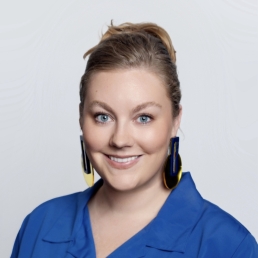
Haley L. Thomas, MSPH ‘22
With a human rights and reproductive justice lens, I explore the social and interpersonal factors that impact sexual health, reproductive health, and childbearing trajectories across the lifecourse. I have experience with both direct and indirect measurement methods for estimating sensitive or stigmatized behaviors and experiences such as sex, family planning, abortion, infertility, reproductive coercion, and intimate partner violence. I received my MSPH from the Department of Population, Family and Reproductive Health (PFRH) in 2022 and am pursuing a PhD in the same department. I chose PFRH for both my MSPH and PhD because of the Department's focus on interdisciplinary research and advocacy. I currently work for the Center for Global Women’s Health and Gender Equity and for the Performance Monitoring for Action (PMA) project. I am involved in both quantitative and qualitative research with women, men and adolescents.
Emma Wallengren, MMSc
My research examines how social influences - including peers, parents, and community norms - shape adolescent sexual development and well-being. I use these insights to inform the design of public health interventions, such as sexuality education and parenting programs, that center young people’s voices and promote healthy sexuality within their relational and community contexts. I am particularly interested in applying human-centered design and implementation science methods to improve the local relevance, effectiveness and sustainability of interventions.
Prior to my doctoral studies, I obtained a Master’s in Health Promotion and Prevention at Karolinska Institutet and a dual bachelor's degree in biology and social sciences from Sorbonne Université and Sciences Po Paris. I contributed to technical guidance and advocacy at UNFPA and the Swedish Association for Sexuality Education (RFSU). There, I developed a strong commitment to translating research into action. I chose PFRH for its vibrant community of faculty and students dedicated to improving population health and well-being across the life course.
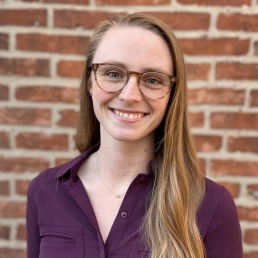
Kelsey Williams, MSPH '22
I am a PhD candidate concentrating in Child Health within the Department of Population, Family and Reproductive Health, where I also completed my MSPH (’22). I am a Maternal and Child Health Center of Excellence trainee and also completed a certificate in Evaluation of International Health Programs. I am currently a research assistant on the ENRICH trial, collaborative analyses with the Maryland Department of Health using state PRAMS data, and Project Viva analyses. Previously at JHU, I worked on other projects with the Early Childhood Services Research Program, the Maryland Department of Health, and Performance Monitoring for Action. I have served as a teaching assistant for 13 classes at both undergraduate and graduate levels. For my dissertation, I am investigating the impact of community and structural determinants of health on early childhood home visiting.
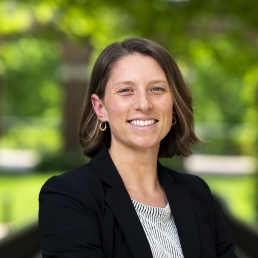
Krista P. Woodward, MPH, MSW
My primary research interests include adverse and positive childhood experiences (ACEs & PCEs) and systems-level solutions to promote health and well-being across the life course. My dissertation is focused on the effects of comorbid ACEs and PCEs among bereaved youth on institutional engagement and mental health outcomes in adulthood. Prior to coming to Hopkins, I worked at the Patient-Centered Outcomes Research Institute (PCORI) as a Program Officer in the Public and Patient Engagement Department supporting research engagement practices in the PCOR workforce. I completed my dual MPH and MSW degrees at Washington University in St. Louis School of Social Work and BS in Psychology at Lafayette college.
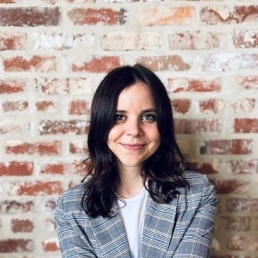
Emily Young
My research lies at the intersection of adolescent and school health. Specifically, I am interested in the implementation science of school health frameworks and how school environments influence adolescent health behaviors and outcomes. These interests stem from my years as a high school English teacher in Baltimore, and from my ongoing work with the CDC’s Division of Adolescent and School Health. I chose to pursue doctoral studies with PFRH to further develop skills and expertise in school-based program design, implementation, and evaluation alongside faculty who work closely with Baltimore City Public Schools—the place where it all started for me! I currently work as a research assistant for ‘Nobody Asked Me’, a collaborative research project between JHSOE and JHSPH that explores young Baltimoreans’ experiences living and attending school in the city.
